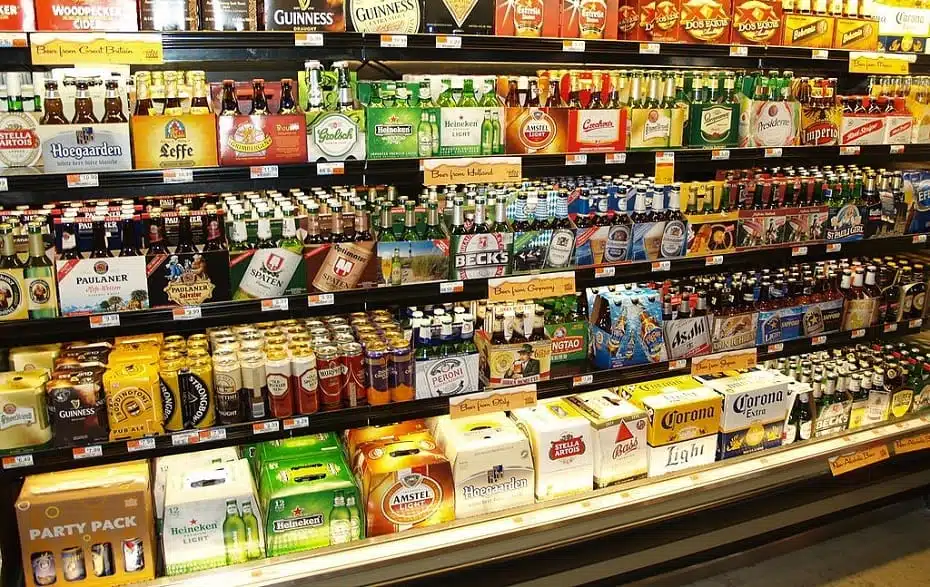
What Can Happen to You if You Sell Alcohol to a Minor in Ohio?
Everyone knows you must be 21 years old to purchase and possess alcohol in Ohio. But what does the legal drinking age mean for owners and employees of bars, restaurants, liquor stores, and grocery and convenience stores? What does it mean for other ways minors can get their hands on alcohol?
The Ohio Revised Code has quite a bit to say about selling and supplying alcohol to people who are younger than 21. Stripping out a considerable amount of fine detail, the laws on underage alcohol sales and supply in Ohio look like this:
- No business or employee of a business may sell or supply “beer or intoxicating liquor” to a minor.
- No one may knowingly purchase alcohol for a minor.
- A parent or legal guardian may legally supply alcohol to their own child as long as this is done only within the home.
- A spouse who is older than 21 may supply alcohol to their own younger husband or wife as long the liquor, beer, or wine is consumed in the home.
- A minor can receive and consume alcohol as part of a religious ceremony.
- A minor can consume alcohol that is used to mix medications prescribed by a doctor and/or approved by the FDA.
Possible Penalties for Selling or Supplying Alcohol to a Minor
The maximum statutory penalty for selling alcohol to an underage person is 60 days in jail and a $500 fine. A business could also have its license to sell alcohol suspended or revoked, and the employee who made the sale will likely be fired.
Supplying alcohol to a minor in violation of state law carries even stiffer statutory penalties. A conviction on this alleged offense can bring up to six months in jail and a fine of as much as $1,000.
One Recognized Defense Against a Charge for Selling Alcohol to a Minor
To again cut through legalese, getting fooled by a well-made fake ID is not a crime. An employee who can prove that they asked for, received, and checked a minor’s identification before selling the underage person alcohol should be able escape conviction. This affirmative defense will be strengthened by showing that the store, bar, or restaurant had a consistent policy of confirming customers’ ages when selling beer, wine, and liquor.
Partnering with a Columbus criminal defense attorney who has experience handling cases involving underage alcohol sales and possession can help a defendant avoid the harsh penalties involved in these situations. The lawyer will know how to obtain and analyze security camera footage, locate and interview witnesses, and assemble documentation for alcohol sales policies and compliance.
An Additional Note on Selling Alcohol to People Who Are Clearly Drunk
In Ohio, a person who sells alcohol to someone who is already intoxicated commits a misdemeanor that is punishable by up to 60 days in jail and a fine of $500. The relevant state statute places the responsibility for determining that a customer has been overserved entirely on the clerk, bartender, or waitperson. This law is generally only enforced when a drunk person purchases alcohol and then, in short order, injures or kills someone (typically when they are caught driving under the influence after being overserved).
Section 4399.18 of the Ohio Revised Code also makes it possible to hold the owner of a business, where an employee sold alcohol to a clearly intoxicated person, liable for the injuries and deaths caused by the drunken individual. This is called dram shop liability. Invoking it is rare, but businesses that sell liquor, beer, and wine must impress on clerks, bartenders and wait staff that cutting off people protects lives and their jobs.
If you need advice or representation regarding an underage alcohol case in the Columbus, Ohio area, consider reaching out to Colin Maher of The Maher Law Firm. He provides free phone consultations to all potential clients. Connect with Colin online or call him at (614) 205-2208.
RECENT POSTS
-
What Happens If You Hurt Someone in a DUI?
27 May 2025
-
What is Improperly Handling Firearms in a Motor Vehicle in Ohio?
27 Mar 2025
-
What is the Difference Between OVI and DUI in Ohio?
05 Mar 2025
-
What Happens When You File a Police Report on Someone For Harassment
11 Dec 2024
-
How to Move for Dismissal for OVI in Ohio
28 Oct 2024
-
Ohio Fraud Laws: Fraud Charges and Their Penalties in Ohio
12 Sep 2024
BLOG CATEGORIES
-
Traffic
126 Posts
-
Weapons
3 Posts
-
Drugs
22 Posts
-
DUI
196 Posts
-
Current Events
1 Posts
-
Expungements
2 Posts
-
News
18 Posts
-
Criminal Defense
45 Posts


